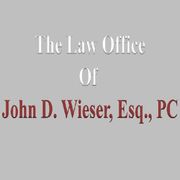
When homeowners take out mortgages, they often expect to be able to make payments. However, since agreements can last several decades, economic hardships can make sticking to the payment schedule difficult. Missing several mortgage payments can result in a foreclosure, or legal seizure of the property by the lender. In this situation, you could lose the home and any equity you established. If you received a foreclosure notice, here is a brief overview of some of your options.
What to Do When Dealing With a Potential Foreclosure
1. Negotiate
Although this isn’t always the case, lenders are often open to helping you establish a repayment plan. Sometimes, lenders prefer to offer people the opportunity to gradually satisfy the past-due balance so they can stay current with future payments. This strategy may require you to sell some assets, including vehicles, so you can pay off as much of the balance as possible.
2. Sell
Short sales are potential solutions if you don’t have other assets available to cover a repayment plan. When you short-sell a home, you sell the house to someone else under a time constraint. While you may need to lower the anticipated asking price to close the deal before eviction, this tactic helps you avoid the consequences of foreclosure on your credit report and allows you to recover equity.
3. Go to Court
 If you believe that the lender has made inaccurate claims about missed mortgage payments, you can fight against foreclosure in court. An attorney may also argue that the lender has acted fraudulently. In this situation, you and the attorney must show that there was a “material misstatement, misrepresentation, or omission relating to the property or potential mortgage.”
If you believe that the lender has made inaccurate claims about missed mortgage payments, you can fight against foreclosure in court. An attorney may also argue that the lender has acted fraudulently. In this situation, you and the attorney must show that there was a “material misstatement, misrepresentation, or omission relating to the property or potential mortgage.”
4. File for Bankruptcy
Bankruptcy may eliminate numerous debts, while also delaying the foreclosure and reducing the risk of eviction. Depending on the circumstances, you may qualify for Chapter 13 bankruptcy—a solution that requires you to repay a portion of the debt but keep the home. Chapter 7 bankruptcy can take away the property, but discharges many debts.
If you’re worried about foreclosure, turn to John D. Wieser, Esq., PC in Buffalo and Rochester, NY. Well-versed in bankruptcy law, this compassionate attorney will review the case and outline the options you have to move forward, including Chapter 7 and Chapter 13 cases. Visit this attorney online to learn more about debt relief, or call (585) 328-0660 to schedule an informative consultation.
About the Business
Have a question? Ask the experts!
Send your question

